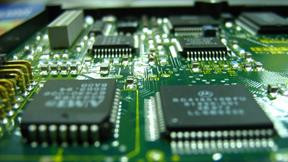On July 24, the German government announced plans to allocate €20 billion (approximately $22 billion) to bolster the nation's semiconductor industry, in a bid to boost the technology sector and secure the supply of essential components, according to media reports.
This capital will reportedly be distributed to both domestic and foreign chip companies by 2027, and will be drawn from the €180 billion Climate and Transformation Fund (KTF), insiders said. Established outside of the federal budget, KTF was originally created to foster investments in a low-carbon economy. However, the scope of this fund has broadened as government expenditure routinely surpasses the regular budget. German government officials are currently debating how to allocate the fund in the coming years and details will be announced in the upcoming weeks.
The German Ministry of Finance mentioned that the economic plan draft for 2024 and the financial plan till 2027 from the Climate and Transformation Fund are under preparation and are yet to be finalized.
When examining the €20 billion distribution, the German government has reportedly agreed to subsidize Intel's new factory in Germany with €10 billion, which represents about one-third of the total investment in the new factory. Talks are underway to grant around €5 billion to Taiwan Semiconductor Manufacturing Company (TSMC) for a new factory, with the German government's subsidy covering approximately half of the total investment. Additionally, Infineon Technologies, a German company, could receive a €1 billion subsidy, accounting for around 20% of the total investment in a new factory. A joint venture factory in Germany, established by German automotive supplier ZF Friedrichshafen and American chipmaker Wolfspeed, is also set to receive a €750 million subsidy, approximately one-quarter of the total factory investment.
This allocation suggests that Intel and TSMC are poised to capture about 75% of the €20 billion subsidy program, leaving roughly €3 billion available for other companies. Market projections hint at potential beneficiaries like Bosch, among others.
The German government's push for domestic chip production has been heavily influenced by supply chain disruptions during the Covid-19 pandemic, which left German automakers and other industrial manufacturers struggling to secure timely chip supplies.
Despite fiscal cutbacks, with plans to slash several billion euros from next year's budget - including certain social benefits - the German government continues to offer subsidies to chip companies, signaling the sector's importance.
Beyond Germany, the entire European Union (EU) is keen on self-producing chips. Earlier this month, the European Parliament passed the "Chip Act". This legislation stipulates that by 2030, the EU should boost its share of global chip production from the current 10% to 20% to meet both domestic and global market demands.
The act is designed to support projects that can enhance the EU's supply security through attracting investments and building capacity. Besides investing a budget of €3 billion in research and innovation related to chips, the EU will also establish a network of capability centers to address the skill shortage in the region and attract new talent in research, design, and production. Furthermore, a crisis response mechanism will be set up to assess the risks facing EU semiconductor supply.






